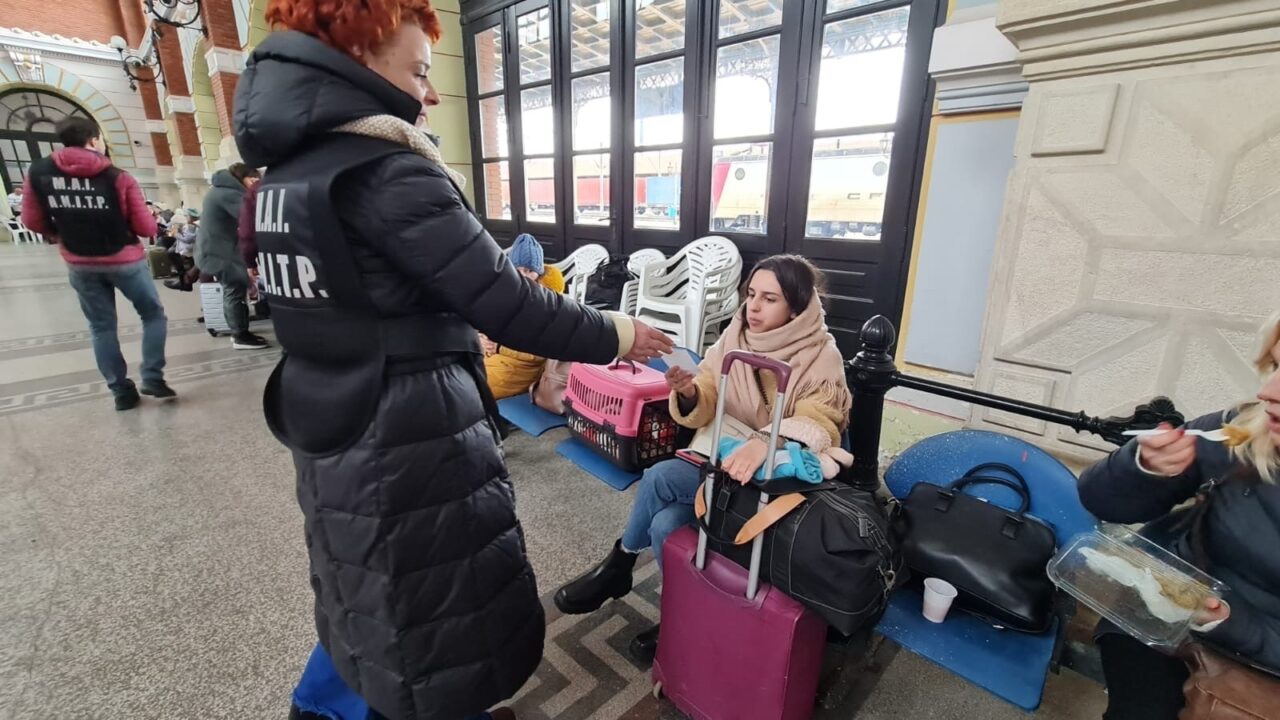Update on IJM Romania support on the Ukraine border
Human Trafficking
“It’s really important for this message to be heard: there is a risk when you have millions of individuals who are extremely vulnerable coming across the borders in large waves,” said Shawn Kohl, Director for IJM in Central and Eastern Europe. “There is the potential for human trafficking. And we already know that it exists, we know that it exists in large numbers between Romania and the UK, between Poland and the UK and other western European countries. Trafficking already existed, and this current crisis just exacerbates the possibility that there will be human trafficking.”
IJM continues to support partners in Romania as they provide for the current and emerging needs of refugees from Ukraine. One observation of IJM staff and partners has been that the people crossing the border now have fewer resources and contacts for family or friends across Europe. The majority of refugees IJM staff are speaking with do not have a specific destination where they plan to travel, and rarely know anyone who can meet them or help them when they arrive. People are more vulnerable to the possibility of trafficking if they do not have support systems and protections in place.
“It’s important that we have good tools available and good resources available for individuals as they are crossing,” Shawn said. “For instance communications and SIM cards and proper reporting mechanisms.”
By March 6, the IJM Romania team had worked with ANITP (Romania National Agency Against Human Trafficking) to distribute 8,500 flyers at the border about the signs and risks of trafficking and the available helplines.
A handful of Churches in Bucharest have joined together to support Ukrainian refugees. Anecdotally, they have reported that of the approximately 700 refugees who have passed through so far, only about 20% have a concrete destination where they are going. The other 80% do not yet have a plan or a specific place to go but are moving towards Western Europe.
“I went and bought supplies to take to a local church who has turned their entire complex into refugee housing. They are organized and efficient and are doing everything they can to house as many people as possible, but still comfortably,” an IJM volunteer said. “The beautiful and sad thing about this whole situation is that there are hundreds of people in all these countries doing the exact thing that we are, [helping] day in and day out. We are not unique, and while it is beautiful that we aren't, it's horrifying to think of the reason why we're needed at all.”
Aside from the immediate crisis, there is a likelihood that the greatest trafficking risks will be seen weeks or months in the future.
“If you’re staying in a refugee center or shelter for a long time, it’s hard to find work. Then your risk tolerance really increases dramatically the longer you’re in one place,” Shawn Kohl said. “That’s when we know there’s a lot of vulnerable people that could be recruited. Normally it’s not what you’d see in the movies - it’s not people in chains - but it’s really just a promise of a better future. It’s the hope that traffickers oftentimes prey upon; individuals that need some support and want a job.”
Staff from IJM continue to advise partners at the border and support those sheltering refugees with supplies.